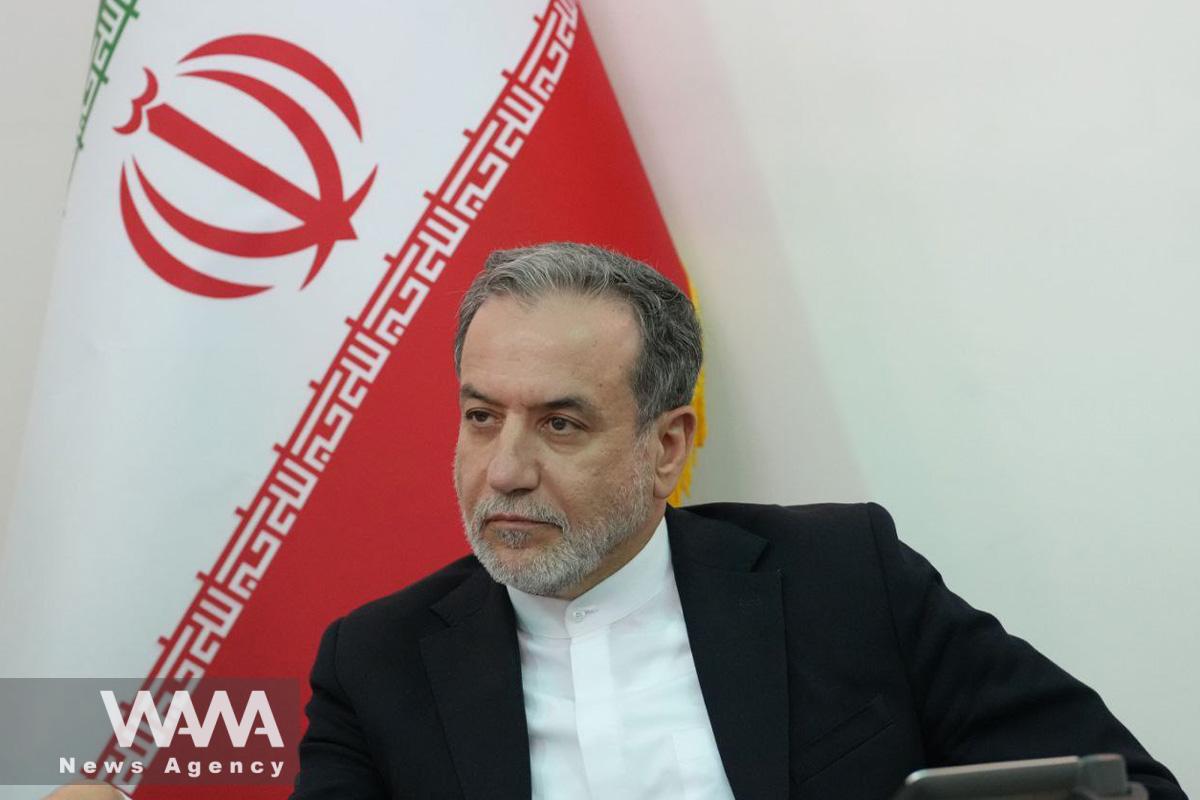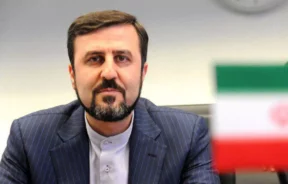Araghchi: Preparedness for War is What Prevents It
WANA (Nov 19) – On Tuesday, Iranian Foreign Minister Seyed Abbas Araghchi addressed senior commanders and personnel at the IRGC General Command headquarters, emphasizing that the recent “True Promise 2” operation, like its predecessor, was a defensive measure. While speaking about Iran’s right to respond to the latest Israeli aggression he stated “What prevents war is preparedness.”
Araghchi highlighted Iran’s calculated approach over the past year, noting that its decisions were guided by prudence rather than emotion. “We have acted prudently and deliberately over the past 12 months, avoiding emotional or impulsive decisions,” Araghchi said. “Our actions consider all circumstances, potential scenarios, and even traps laid by our adversaries.”
Araghchi highlighted that Iran’s responses were managed to prevent the escalation of war, a scenario Israel seeks to provoke by dragging the U.S. into the conflict. “We have taken all conditions, possibilities, and potential traps into account. Our responses have been strategic, ensuring that we prevent escalation into a broader conflict—exactly what Israel desires to involve the U.S.,” he said.
The foreign minister firmly rejected the notion of inaction in the face of aggression, stating, “If we signal to our enemies that they can strike us without consequences, it would invite further attacks. Rest assured, Iran retains the right to respond, and we will act wisely and decisively when the time comes.”

Iranian Foreign Minister Seyed Abbas Araghchi meeting with senior commanders and personnel at the IRGC General Command on November 18, 2024. Social media/ WANA News Agency
Preventing War Through Preparedness
The minister underscored that readiness for war is the key to preventing it. “Showing even the slightest sign of fear invites conflict. To deter war, we must demonstrate unequivocal preparedness to defend ourselves,” Araghchi remarked. He warned that any perceived weakness would embolden adversaries, making a strong and resolute stance crucial during times of tension.
Political Deterrence: The Role of Diplomacy
Reflecting on the aftermath of “True Promise 2,” Araghchi explained that the Foreign Ministry’s primary duty was to establish political deterrence. He stated, “Political deterrence involves rallying regional and international opposition to the aggressor, creating a defensive shield of allied stances against the enemy.”
Araghchi also paid tribute to Iran’s late Foreign Minister Dr. Amir Abdollahian, who played a pivotal role in diplomatic efforts following the first “Promise of Truth” operation. He described the recent diplomatic undertakings as a “complex regional effort” aimed at amplifying anti-Israel sentiment and reducing the likelihood of conflict escalation.
Military Power and Diplomacy: Inseparable Forces
Araghchi reiterated the interconnectedness of military power and diplomacy, asserting, “Diplomacy derives strength from power. Without it, words carry no weight. Conversely, power without diplomacy lacks direction. The two are interdependent.”
In closing, the foreign minister emphasized that Iran’s measured and deliberate actions ensure its sovereignty is upheld without succumbing to provocations, safeguarding both regional stability and national interests.

Baghaei: Israel’s Threats Against Iran Violate International Law, Will Be Met with Appropriate Response
WANA (Nov 18) – In his weekly press conference today, Iranian Foreign Ministry Spokesperson Esmail Baghaei addressed the recent threats by the Israeli regime against Iran’s nuclear facilities. He stated, “Our region has been familiar with the lawless approaches of the Israeli regime for decades. We have taken the necessary measures to defend the nation’s […]












